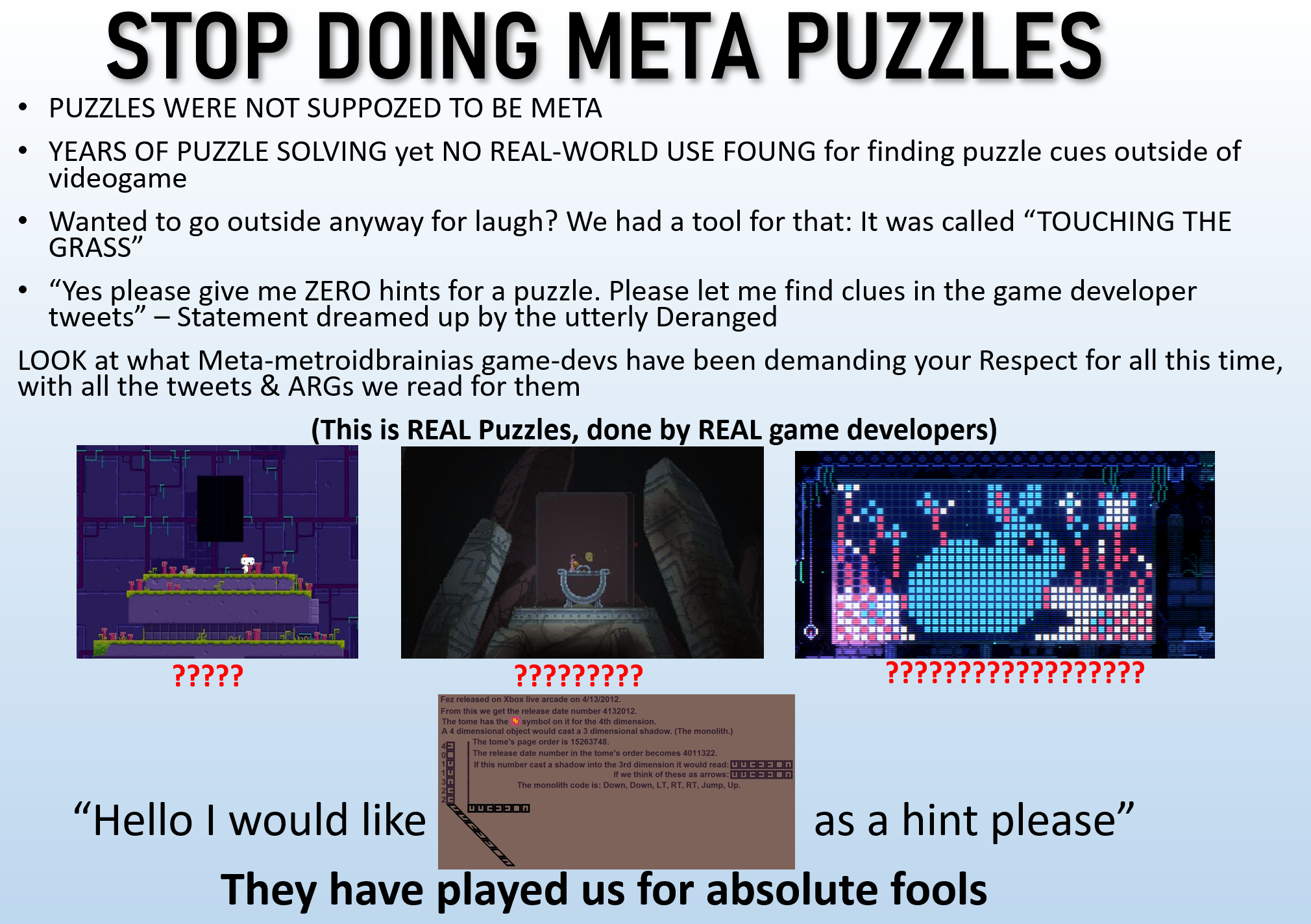Musings on metapuzzles, part 1: What isn't a metapuzzle?
I've had some thoughts in my head for a while about drawing a line between puzzlehunt metapuzzles and puzzle game metapuzzles as a blog series or a ThinkyCon talk or something. Then a bunch of conversations about the topic happened on Discords I'm on at the same time, so that prompted me to start getting this written down sooner rather than later.
It's a hard thing to talk about because many of these things are late game or otherwise culminating, so there's a lot of spoilers. (and I haven't figured out how to do spoiler tags with Publii yet) So for now, I'll list spoilers before the break as appropriate.
This time around, vague and out-of-context spoilers for Fez, Noita, and Animal Well...
...because one of the conversations was this meme:

These kinds of puzzles are "meta" in the sense that they're meta-game: using ARGs, breaking the fourth wall. The kinds of metapuzzles that I'm interested in talking about are meta in the sense of meta-puzzle: bringing together information or resources across a broader scope than a single puzzle. (I'll be coming back to this definition a lot) They certainly could have those sorts of "meta" elements, but they're different axes.
Can we make a terminology distinction between the two? You could do "meta puzzle" vs "metapuzzle," but that seems like a worse version of the "rogue-like" vs. "rogue-lite" distinction. I suppose we'll have to live with context clues, and for this blog series I'm talking about puzzles using other puzzles.
As a historical aside, some other definitions of "metapuzzle" that also aren't the topic of these blog posts:
- Logic puzzle designer Raymond Smullyan used the term for logic puzzles where you aren't given enough data to solve the puzzle on your own, but the knowledge that some other person was given some extra piece of information and then able to solve (or not solve) the puzzle helps you solve it. The Cheryl's Birthday problem and similar modern ones are related to those, but the "metapuzzle" term's gone out of use for them. (thankfully)
- Cliff Johnson called his entire games metapuzzles, referring to the entire collection of puzzles rather than just the culminating puzzle. I'd say this phrasing's also fallen out of use, but then Pedja Banovic's book A Compendium of Meta-Puzzles just came out last year and might be bringing it back.